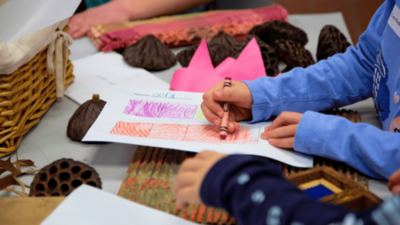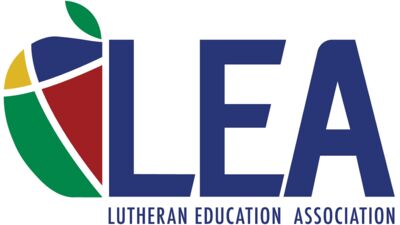God's Design for Relationships

Relationships are central to the human experience, woven into the very fabric of God’s creation. Lutherans believe that God intentionally designed relationships to reflect His love, order and purpose. From the union of Adam and Eve in Genesis to the redemptive relationship between Christ and His church, the Bible reveals a beautiful, divine pattern for how we are to love and care for one another in marriage, family and community.
God created us not to live in isolation, but in connection. To love and be loved, to know and be known. Every relationship we form carries the imprint of God’s intentionality and care. As we walk in faith, these relationships become opportunities to reflect His grace and truth to the world around us.
A Biblical Blueprint for Marriage
Marriage is a sacred covenant, not merely a social contract. It is a divine institution, established by God for companionship, procreation and mutual support (Genesis 2:18-24). In Ephesians 5, Paul describes marriage as a profound mystery that mirrors Christ’s sacrificial love for the church. Husbands are called to love their wives as Christ loved the church, with humility, selflessness and unwavering devotion. Wives are encouraged to respect and support their husbands in love, trust and shared mission.
When lived out in faith, marriage becomes a beacon of God’s steadfast love. It is a relationship of unity and service, where forgiveness flows freely and each partner seeks the good of the other. In this mutual submission and shared purpose, we glimpse the deep joy that God intends for His children.
Family as a Reflection of God’s Order
God’s design for relationships extends beyond marriage into the family unit, the cornerstone of society and the primary place where faith is formed. In Deuteronomy 6:6-7, parents are given the high calling of teaching God’s Word diligently to their children. The Fourth Commandment reminds us to honor parents, acknowledging the authority and care they are called to provide.
In a Christian home, love is not earned; it is freely given. Grace abounds. Children are raised not just with rules but with purpose and promise. The family, in all its joys and challenges, becomes a living classroom for discipleship, where God’s mercy is learned and His truth is shared from generation to generation.
The Power of Christ-Centered Family Counseling
Despite God’s perfect design, we live in a world fractured by sin. Marriages struggle under the weight of unmet expectations. Families face conflict, miscommunication and pain. Society often distorts what God intended to be beautiful and life-giving.
Yet, there is hope. In the midst of brokenness, God raises up faithful servants to bring healing and restoration. Trained Christian counselors are a blessing to the church and the world, guiding individuals and families back to God’s truth with compassion, discernment and grace. Through Spirit-led counseling, relationships can be renewed, forgiveness embraced and hope restored.
For those who feel called to walk alongside others in their journey toward healing, Concordia University, Nebraska offers a graduate degree in Marriage and Family Therapy. This program is grounded in Lutheran theology and integrates rigorous academic training with a deep commitment to Christ-centered care.
Students learn to blend evidence-based therapeutic methods with a strong foundation of faith, enabling them to support marriages in distress, counsel families in crisis and foster healthy, God-honoring relationships.
God calls each of us to be stewards of His design for relationships, to embody His love, grace and truth in our interactions with each other. Whether through personal commitment or professional service, we can reflect the heart of Christ in our marriages, families, churches and communities.
If you feel called to help others build stronger, faith-filled relationships, consider how Concordia University, Nebraska’s Marriage and Family Therapy program can equip you to serve with wisdom, compassion and faith.
Interested in Concordia University, Nebraska's marriage and family therapy degree?
Related Stories


